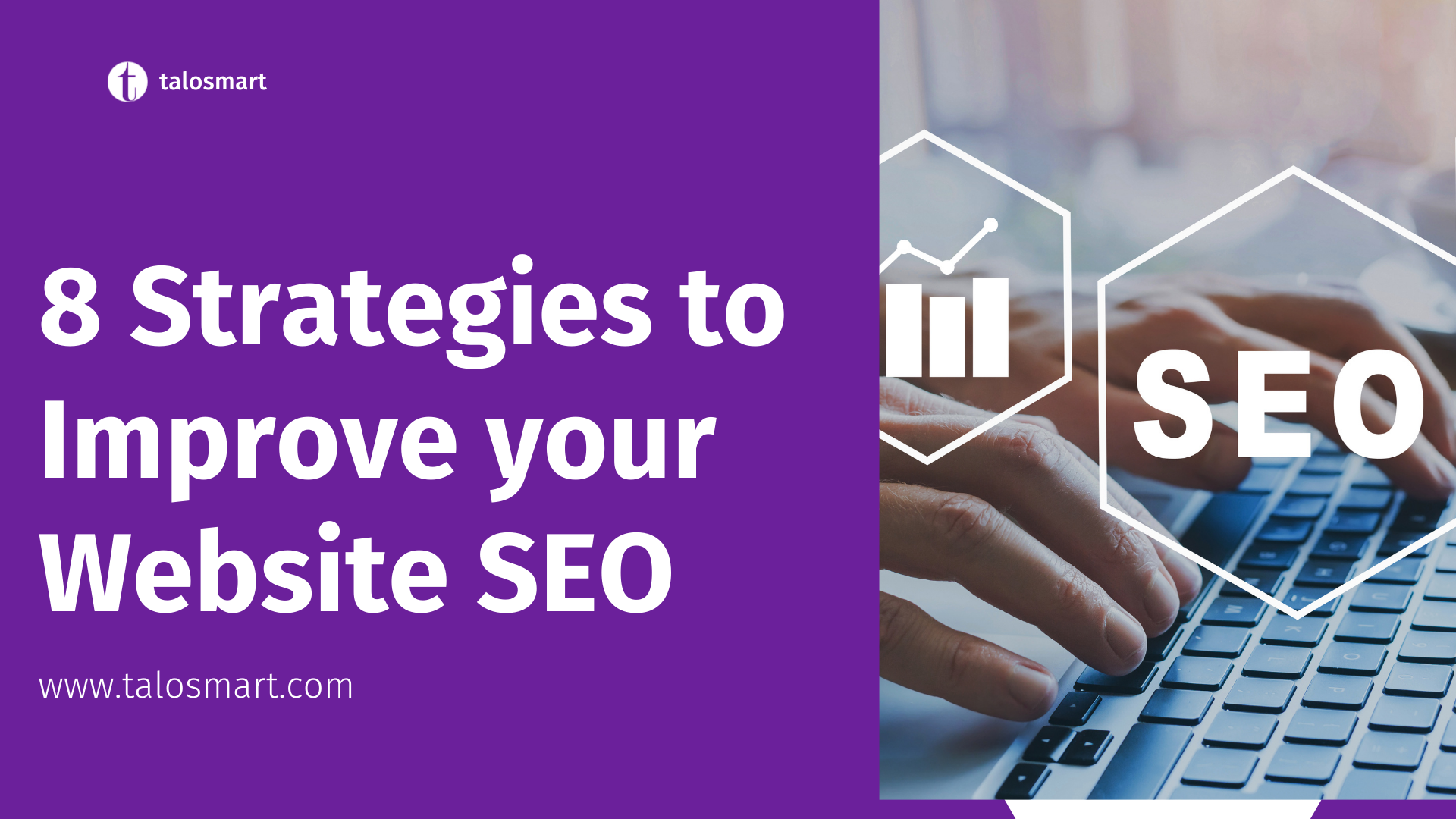SEO (Search Engine Optimization) is a crucial aspect of digital marketing that aims to improve a website's visibility in search engine results. By optimizing your website for search engines, you can attract more organic traffic and potentially increase your online presence. Here are eight best SEO strategies to get you started:
1. Keyword Research and Optimization:
Perform thorough keyword research to identify the relevant keywords and phrases that users use to search for content related to your website. Incorporate these keywords strategically into your website's content, meta tags, headings, and URLs. However, ensure that the content reads naturally and provides value to the users.
2. High-Quality Content Creation:
Create valuable, informative, and engaging content that aligns with the interests of your target audience. High-quality content is more likely to be shared, linked to, and ranked higher in search engine results. Regularly update your website with fresh content to keep visitors coming back for more.
3. On-Page Optimization:
Optimize your website's on-page elements, including meta titles, meta descriptions, headers (H1, H2, etc.), image alt tags, and URLs. Use descriptive and keyword-rich titles and meta descriptions to improve click-through rates from search engine results pages (SERPs).
4. Mobile-Friendly and Responsive Design:
With the increasing use of mobile devices, having a mobile-friendly website is essential. Ensure your website is responsive and adapts well to various screen sizes and devices. Google considers mobile-friendliness as a ranking factor, so a responsive design is crucial for SEO.
5. Page Loading Speed:
Improve your website's loading speed as it directly impacts user experience and SEO. Optimize images, enable browser caching, and use Content Delivery Networks (CDNs) to reduce load times. A faster website is more likely to rank higher in search results.
6. Link Building:
Focus on building high-quality backlinks from reputable websites within your industry. Backlinks signal search engines that your content is valuable and trustworthy. However, avoid link schemes and spammy practices, as they can lead to penalties.
7. User Experience (UX) Optimization:
Enhance the overall user experience on your website. Ensure easy navigation, clear calls-to-action, and a logical website structure. User-friendly websites are more likely to have higher engagement and lower bounce rates, positively impacting your SEO.
8. Local SEO:
If your business has a physical presence or serves specific geographical areas, optimize your website for local SEO. Claim and optimize your Google My Business listing, ensure consistent NAP (Name, Address, Phone number) information across all platforms, and encourage online reviews from satisfied customers.
Remember that SEO is an ongoing process, and it may take time to see significant results. Stay updated with the latest SEO trends and algorithms, and continuously monitor your website's performance to make necessary adjustments. By implementing these best SEO strategies, you can position your website for improved search engine rankings and organic traffic growth.

Your experience on this site will be improved by allowing cookies.
 July 20, 2023 - BY Admin
July 20, 2023 - BY Admin